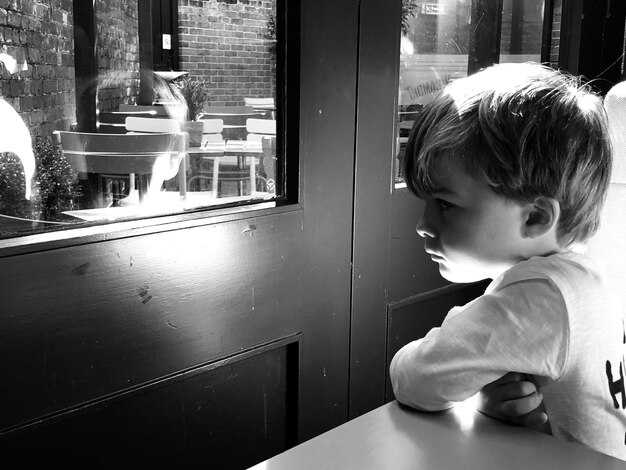Believe me from hard-won experience: destroying a marriage is almost always much easier than rebuilding one. It takes far less effort to let a relationship quietly fall apart than to deliberately nurture it. Falling in love is simple compared to the ongoing work of remaining in love. Some of you are thriving right now — that’s fantastic, and you probably wouldn’t be reading this if everything were perfect — but many others are heading somewhere dangerous without realizing it. You’ll repeat the same mistakes I made: you’ll relegate your marriage to the background, unaware of what it really needs to survive, and bit by bit you’ll neglect it until you drift apart with no clue exactly when or how it happened. For some of you, you’re already past that tipping point: you find yourself trapped in a marriage that feels dead, or loveless, and you don’t know what to hope for anymore. You don’t want to give up, yet the amount of effort required to fix things feels overwhelming, and you doubt you have the will to invest in a relationship that seems unlikely to recover.
Others of you know exactly how it unraveled — an affair, alcohol, drugs, or violence — and you accept that your choices destroyed the marriage. You’re desperate to know: how do I undo this? There is both encouraging and sobering news. Encouraging: it’s often possible to rebuild, if your partner is willing. Sobering: it will demand a great deal from you. Love and healing ask things of us. The first step is to stop clinging to the old, failing way you handled marriage. Admit you were wrong, quit repeating what didn’t work, and commit to doing things differently, even when that costs you. Recovery requires uncomfortable self-examination: confronting painful memories, asking why you respond the way you do, and pursuing emotional growth. It requires humility, selflessness, and sacrifices you may never have made before. You must abandon destructive patterns of speech and conflict and replace them with healthier habits. Stop pointing fingers; accept responsibility for how your actions have harmed the relationship.
Commitment means more than remaining under the same roof — it means intentionally deepening your love, actively pursuing intimacy, friendship, and trust. It requires practicing honesty, respect, vulnerability, and closeness. This is not a mere upgrade to the old marriage; it’s the work of creating a new marriage with fresh goals, routines, and accountability. Many claim they’d do anything to save their marriage, but the truth is some of you aren’t yet capable of the changes listed here; you only think you are. The first honest step in reflection is admitting you need help — because you probably do, and you may have been blind to that for years, maybe decades. Admitting “I need help” is often the most mature thing you can do. Too many of us went into the crisis convinced we could handle it ourselves — and then discovered we couldn’t. That attitude ruined the marriage, and it will sabotage recovery if you keep it. Let it go. Seek counseling alone if necessary, read the right books, confess that you don’t know what you don’t know, and accept that sometimes you are the problem without even realizing it.
Humble yourself and be willing to learn, because good intentions are useless without the right application. Most people want a great marriage — intimacy, connection, low conflict — but few follow the paths that lead there. You can promise and vow, but if you lack the capacity to carry those promises out, you become the obstacle. Emotional blocks, intimacy barriers, unresolved trauma, and addictions all stand in the way. The wisest step is to sit with a professional and ask, “How am I sabotaging my own relational success?” Advice alone won’t fix things unless you do the inner work of reflection and emotional development. This is not checkbox therapy; it’s an honest exploration of what makes relationships thrive or fail. Are you ready to accept that you may be operating from a deficit, as I was? Are you willing to admit you don’t fully understand what love requires here? Can you apologize sincerely — “I’m sorry for how I hurt or neglected you, even if I didn’t realize it” — and stop blaming others?
It’s natural to have reasons for our behavior: childhood wounds, parents’ mistakes, and other explanations seem to justify our reactions. Those factors matter, and they deserve attention in healing. But your responses, even if understandable, remain your responsibility. The first move must be owning those behaviors and admitting how destructive they are. Then put yourself in your partner’s shoes: ask them what it’s like to be married to you. Don’t dismiss their answer as you might normally do — actually ask the hard questions: How do you feel most loved and prioritized? When did you last feel neglected or disrespected? What can I do to prevent that? What old hurts are you still carrying that you never raised because you didn’t feel safe or didn’t think I cared? Do you care? Words of love are cheap if they’re not backed by actions. There is no place for selfishness, pride, defensiveness, dismissiveness, or rage in a relationship that honors and values a spouse.
Most of us display harmful traits without realizing it; our partners often see them clearly. Yet many fear asking for that feedback — afraid of the answer, ashamed of it, or mistrustful of their partner’s perspective. None of these attitudes leads to the intimacy, friendship, and emotional connection a healthy marriage requires. Whether the neglect was intentional or accidental, it still destroys a relationship. Admitting you might be guilty of unseen faults is not weakness but strength, because it opens the door to vulnerability, honesty, and growth. Owning avoided feelings, needs, and fears — and learning to express them — takes courage. The qualities a relationship needs to flourish — empathy, compassion, humility, emotional connection, clear communication, trust, friendship — require bravery, not weakness.
My worry is that some will go from one failed marriage to the next before recognizing the common denominator: themselves. That cycle can be broken, but only when you accept your contribution to the problem. Sometimes a dramatic collapse is what it takes to force us to look up, surrender pride, and begin practicing marriage differently — with sacrifice, humility, mutual submission, and a desire to honor and outdo each other in love and respect. Scripture teaches us to act not from selfish ambition or conceit, but in humility value others above ourselves, looking out for their interests as well as our own. If you claim religious faith yet refuse to let it reshape the way you love your spouse, you must be honest about that inconsistency. Repentance and change are part of authentic faith.
It’s true that a marriage needs two people to thrive, but it only takes one determined person to change the dynamic and steer the relationship toward health. One person can learn what a marriage needs, hold both themselves and their partner accountable for toxic behaviors, and break negative cycles. As John Gottman observed, marriages often die not because of what was said, but because of conversations that never happened. The foundation for repair is communication: conflict is not inherently bad; handling it destructively is. Conflict can be a path to greater understanding and closeness, but most people haven’t been taught how to use it that way. If conflict in your relationship has led only to more distance, anger, and pain for at least one partner, you must change how you engage.
You need to be able to express your feelings calmly and to receive complaints without automatic anger, defensiveness, dismissiveness, excuses, blame, or mockery. That is basic — level zero. Anything less is neglecting a vital requirement of the relationship. Ask your partner whether past conflicts have left them feeling disconnected, abandoned, or rejected. Are you a safe place for their emotions? Do you invite them to share what matters to them, or would you rather they keep quiet because their feelings feel like an inconvenience? When feelings are treated as burdens, trust, friendship, intimacy, and respect bleed out of the relationship and vulnerability vanishes. So learn how to communicate well, especially in conflict. Instead of correcting, arguing, or getting defensive, listen with the intention to understand. She is not attacking even if it feels that way; she is telling you something important. Look for the pain beneath the anger and the unmet need beneath the complaint.
She — like anyone — is allowed to have needs: respect, appreciation, acceptance. Relationships can’t survive without them. During disagreements, take turns speaking. If she comes with a complaint, give her the floor — it doesn’t mean your perspective isn’t valid, it means you value her enough to hear her fully. Ask clarifying questions, seek to understand what she feels and what led to it, and then validate her experience: “Even if I didn’t mean to hurt you, I can see how my actions caused that feeling, and I’m truly sorry.” Don’t offer a rote apology — feel it. Try to step into her shoes. That is empathy, another indispensable element of a healthy marriage. You cannot truly love another person without the capacity for emotional connection; without a desire to know and be known, there is no real relationship.
Practicing these things communicates that you care, that you’re willing to set aside differences and pursue compromise, and that you value the relationship more than winning an argument. Ask yourself: does she feel that is true? Do you? Build a climate of affection, admiration, and appreciation. Cultivate vulnerability, empathy, closeness, and emotional intimacy. If these concepts are unfamiliar, learn about them — look them up, study them, treat them like you treat the things that matter to you. People find time to invest in their guns, trucks, or jobs because they see value in those things. Do you see equal value in the health of your relationship?
So how do you save a marriage damaged by affairs, addictions, neglect, selfishness, or unconscious destructive patterns? By caring enough to devote yourself to the sacrifices required to rebuild trust, deepen intimacy and friendship — maybe for the first time — and by learning what love truly requires in this partnership. Admit you probably need professional help, and put the marriage ahead of your ego and pride. Prioritize respect and healthy communication, and be willing to surrender to a higher authority rather than doing only what you want. If you do this, you will be grateful for the effort. Thank you for taking the time to read, and may your next steps lead toward restoration.


 How I SAVED my Broken Marriage">
How I SAVED my Broken Marriage">

 If you’re the GIVER, Don’t Neglect THIS!">
If you’re the GIVER, Don’t Neglect THIS!">
 Como Saber Se Está na Hora de Deixar a Sua Relação "Segura"">
Como Saber Se Está na Hora de Deixar a Sua Relação "Segura"">
 If You Notice These Behaviours, RUN — They’re Toxic">
If You Notice These Behaviours, RUN — They’re Toxic">
 Stop Letting Your Trauma Drive Decision-Making">
Stop Letting Your Trauma Drive Decision-Making">
 ">
">
 The Childhood Reason You Still Feel Empty Inside">
The Childhood Reason You Still Feel Empty Inside">
 The 5 SHOCKING Stages of an Avoidant Coming Back (Nobody Tells You #5)">
The 5 SHOCKING Stages of an Avoidant Coming Back (Nobody Tells You #5)">
 Why Avoidants Disrespect You and The Secret Battle They’re Fighting | Avoidant attachment style">
Why Avoidants Disrespect You and The Secret Battle They’re Fighting | Avoidant attachment style">
 Is My Partner a Narcissist? (Does it matter)">
Is My Partner a Narcissist? (Does it matter)">
 Dating Rules to To Help YOU Stop Doing EVERYTHING For Your Mate">
Dating Rules to To Help YOU Stop Doing EVERYTHING For Your Mate">